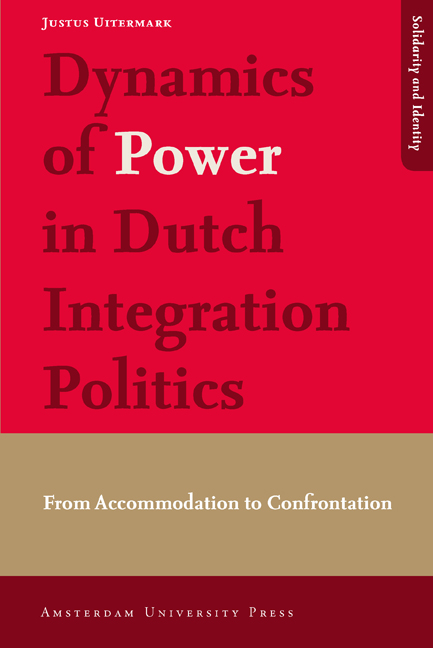1 - Introduction: Integration Politics and the Enigma of Power
Published online by Cambridge University Press: 15 January 2021
Summary
Movements for cultural protectionism have proliferated in recent years throughout Europe and many other parts of the world. The idea that immigration and multiculturalism are the natural and inevitable side effects of globalization has been discredited. The arrival of poor migrants is no longer seen as the logical consequence of an internationalizing labor market but as an invasion of aliens. Multiculturalism is no longer seen as the epitome of liberal democracy but as an ideology that undermines society's ability to respond to the reprehensible ideas and practices of minorities. Parties on the left reluctantly accede that immigration causes problems, while right-wing parties adamantly argue that liberal democracies have been too soft, too accommodating, too understanding. I refer to these notions as Culturalism, a discourse organized around the idea that the world is divided into cultures and that our enlightened, liberal culture should be defended against the claims of minorities committed to illiberal religions and ideologies.
The Netherlands is often considered an exemplary case of a country where multiculturalism has been abandoned in favor of policies that demand and enforce integration. In 1991, Frits Bolkestein, the leader of the right-wing Liberals, argued that the culture of the West was very different from – and vastly superior to – the culture of Islam. He claimed that the integration of minorities had failed and that this was due to the overly accommodating stance of multiculturalists and welfare workers. Since Bolkestein made his intervention in 1991, discursive assaults against multiculturalism, Islam, welfare workers and the left have proliferated. After Frits Bolkestein came Paul Scheffer, followed by Pim Fortuyn, Ayaan Hirsi Ali and Geert Wilders. What matters now is not the background of these individuals or the particulars of their ideas (we will come to that) but the fact that they were, without exception, culturalists. It is therefore not surprising that Baukje Prins argued in 2004 that “Bolkestein's plea against taboos, for the defense of Western values and for the necessity of tough measures … has achieved a definite victory” (Prins 2004: 13). Many other observers have come to the same conclusion, even if they have not used the same terms.
- Type
- Chapter
- Information
- Dynamics of Power in Dutch Integration PoliticsFrom Accommodation to Confrontation, pp. 15 - 20Publisher: Amsterdam University PressPrint publication year: 2013



